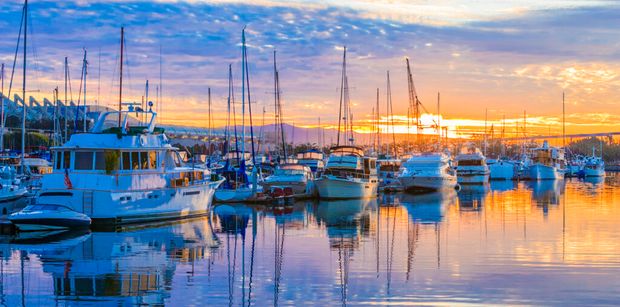The boating industry has been increasing its focus on sustainability and reducing its environmental impact for some time now. As concerns over climate change and fossil fuel depletion mount, many boat builders are setting their sights on utilizing alternative fuels in the future.
At Boatbookings, we consistently work to minimize our impact on the oceans and always offer our clients greener crewed catamaran options.
With the advancements in technology and a growing demand for greener solutions, a range of alternative fuel options are emerging as viable contenders for the future of boating. We take a look at them here:

Electric
Electric propulsion systems, powered by advanced battery technologies, have become more prevalent in today’s boats. These systems eliminate the need for traditional combustion engines, significantly reducing carbon emissions and noise pollution. While there are still challenges in terms of range and charging infrastructure, battery technology is constantly improving, and today, charging within the marina is increasing, making this a better option.
Biofuels
A promising alternative is biofuel, derived from renewable sources such as plant materials and agricultural waste. One example being used in boating is Hydotreated Vegetable Oil (HVO). The benefit of this fuel is that it can be placed within existing diesel engines and, therefore, can be used for the existing fleet as it can be mixed with diesel and has been said to cut carbon emissions by 90%. At the moment, the availability of this fuel remains limited, and therefore, it is not accessible to many boats, but this is improving with demand.
Hydrogen
Hydrogen can be used in combustion engines and fuel cells and has been said to be the most sustainable. Therefore, hydrogen is one of the central elements of the energy transition. However, there are challenges for the boating industry. The use of hydrogen presents issues such as the large amount of volume to store and the amount of energy required from renewable sources to produce it.
Methanol
This has been one of the leading alternative fuel options, and while not yet available for yachts, it is the most likely for the next generation of commercial shipping. However, storing methanol onboard requires much more volume, resulting in less usable space. As an alternative, this fuel can also be used via fuel cells to generate electric power. Lurssen has long been working with alternative fuel technology. They developed fuel cell propulsion technology using hydrogen, reformed from methanol.
Hybrid
Hybrid diesel-electric engines are becoming extremely popular in boating. This alternative results in higher efficiency, lower fuel consumption, and fewer emissions. It also allows the integration of different energy sources, such as hydro generation and solar. Hybrids also will enable the mixing of mechanical propulsion with electrical propulsion.
Solar
Solar energy has become a valuable addition to energy and is an excellent use of natural energy. Silent Yachts and Sunreef catamaran builders facilitate solar panels within their catamaran design. While solar energy is a good addition and valuable in the energy mix for hybrids, more is needed to fuel larger yachts.
As the boating industry continues to pursue more sustainable alternatives, each fuel option has its unique set of pros and cons. Factors such as price, availability, storage requirements, safety considerations, and viability must be evaluated to determine the best option.
The discussion is endless. At Boatbookings, we are committed to staying on top of the alternatives and implementing more ways to reduce our impact. To find out more about chartering one of our greener crewed catamarans, contact a member of the Boatbookings team today.
